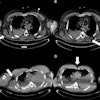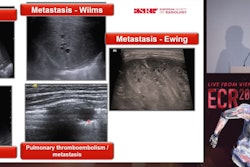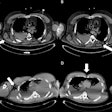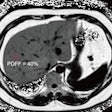An investigation into the death of crime journalist and screenwriter Andrea Purgatori last year in Italy is now looking more closely at the medical professionals involved in his care, including three radiologists and a cardiologist.
Italian media have reported that infective endocarditis may have been overlooked during the initial focus on a malignant brain tumor during Purgatori’s care. The oversight raises questions about the diagnostic process and the subsequent treatment path, according to a story published in Corriere della Sera.
An expert source has told AuntMinnieEurope.com that the case is still open and that the currently available information – at least what’s been reported in the newspaper – makes it difficult to demonstrate a medical error. There is also another possibility, the source noted in our article.
Although there may have been some skepticism in the past that the modality may not be as well suited as others, ultrasound can be a very helpful diagnostic tool for pediatric lung imaging, according to a presentation at ECR 2024. It can perform quite well in detecting pneumonia and neonatal lung diseases.
Patient privacy is an important concern when training imaging AI models. A team in Germany has found a way to guarantee patient privacy when using chest x-rays to train an AI algorithm. The researchers found that their technique, which they call “differential privacy,” also produced high-performing models.
We also have an update on photon-counting CT research underway in Germany and a new blog from Dr. Sophie West of the U.K. Royal College of Radiologists on how she has managed a disability throughout her radiology career.
Erik L. Ridley
Editor in Chief
AuntMinnie.com



















